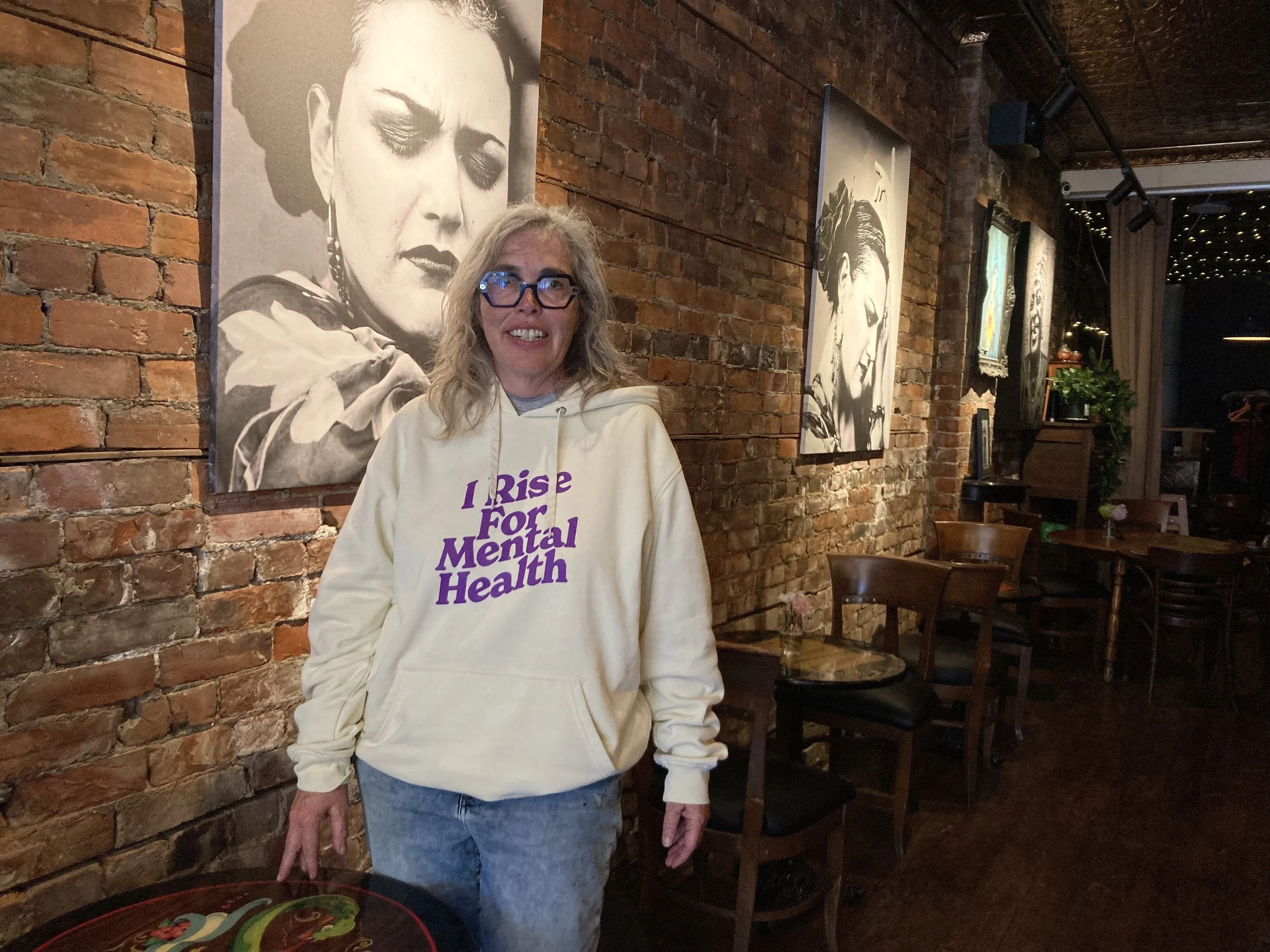CAMH Sunrise Challenge: will you donate?
Tomorrow, and for the four days that follow, I will rise with the sun to raise money for Toronto’s Centre for Addiction and Mental Health (CAMH). If you’d like to contribute, please click here.
Why am I doing this? Read on.
The CAMH Sunrise Challenge is one of the smartest fundraisers to come out of the pandemic — people participating individually yet bound by their collective commitment to doing more for our neighbours who live with mental illness or addiction.
We’ve reached the point in Ontario where people who have family doctors keep them even when they move two hours away. If you’re lucky to have a rent-controlled apartment, you keep it even when if your household size has grown to the point you’re bursting through the walls. Nurses and teachers are quitting in despair. Seems like every one of our publicly-funded systems is stretched to the breaking point.
But the brokenest of all is the mental health system. Google tells me that pretty much the ONLY way to get connected to a psychiatrist in Ontario now is to be referred by an emergency room doctor, and even then, only if you’re at immediate risk of harming yourself or someone else.
This mental health crisis is closely linked to the severe shortage of appropriate housing. A staggering 36,000 Ontarians wait for supportive housing, those non-profits that house and ensure rental success to people who live with mental illness and addictions. When I practised law, I saw the problem close-up. Sometimes tenants’ needs exceeded the kinds of supports even a supportive housing client could provide, and for those cases, regrettably, we ended up at the Landlord and Tenant Board seeking eviction. Everyone in the system - my client, the LTB decision-maker, me, and the tenants themselves - knew that eviction would most certainly result in homelessness or shelter-living. It was commonly understand that spending time on the streets or in a shelter was the only way to be fast-tracked into appropriate housing.
Non-profit and co-op housing providers, not intended for people who need supportive housing workers or case managers, are challenged by residents who need those kinds of supports but can’t find them. I wrote about one of the more difficult cases on rabble.ca here. In my current position in the co-op housing sector, I frequently get emails from strangers recounting deeply personal stories, often involving mental illness, all seeking immediate housing, as though there is some secret stash somewhere. Even those evicted into the shelter system know that fast-tracking will mean months-long waits.
Let’s face it - any one of us at times teeters on the brink of needing those supports. I rarely meet anyone who hasn’t got a family member or close friend who has sought the services of a professional ear to get through a tough time. I observe people in my own community of Weston get further and further into holes not of their own making - holes where they have better access to addictive substances than to the care they’d need to treat the addictions and the often-concurrent mental illnesses that accompany the substance use. Dr. Vincent Lam’s On the Ravine and Barbara Kingsolver’s Pulitzer Prize winner, Demon Copperhead, are both powerful novels helping to shine a light on society’s seemingly endless ability to ignore the pervasiveness of addiction. Lam, especially, hammers the point home that any one of us is just a circumstance away from falling victim to its grasp. I’ve written about both these compelling novel here.
My own COVID response had me taking advantage of my employer-paid health benefits to return to the therapist’s chair - albeit by phone this time - for the first time in a few years. (Click here to read more about the toll COVID took on me prompting me to do the first Sunrise Challenge.)
Earlier this year, many of us read the difficult story of Lorenzo Berardinetti, the former provincial politician who, after suffering ill heath, was rendered homeless. Given his previous profile and his ability to rally the media, Mr. Berardinetti will surely rebound. You can read the CBC story about this here.
But there are countless others who are not so lucky - people who could do with a minor mental tune-up like the one I needed in 2020 but haven’t the health care benefits or who bottom out like Mr. Berardinetti, but don’t have the connections necessary to pull themselves from the depths.
We all need and deserve better publicly funded supports like those provided by CAMH. From Adult Neurodevelopment Services to the Youth Vaping, Substance Use, and Technology Dependence Program (YOUTH-VAST), CAMH has services for every possible need. They know the demand is great and I’m sure would like nothing more than to be able to do their job to provide the community and in-hospital support people need without worrying about their bottom lines. Let’s give them a little boost.
What can you do?
Forward this blog and the donation link to your address book.
Contribute even a dollar or two to the Sunrise Challenge this week. Many will benefit.
Together, let’s break down the stigma still attached to mental illness.









If you like what you’re reading, there is no greater compliment than to become a subscriber. Sign up below with your email address to receive an email with my weekly blog.
